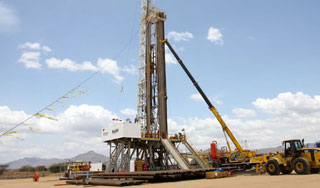
It is boom time in eastern Africa. In 2016, its economies will be the continent’s fastest growing, as investors pour money into burgeoning oil, gas and minerals industries. In response, regional governments are planning massive networks of roads, rails and pipelines that will span East Africa, the Horn, the Great Lakes, and South Sudan. These will benefit many of the region’s citizens by creating jobs, delivering new services, and opening the region to further development. But these projects will also cross areas that are perennially insecure, where competition for control of natural resources, economic assets, and political power drive recurrent violence. In these areas, there is a risk that these rapid and disruptive developments willaggravate and complicate existing conflicts and create new patterns of violence.
On 13 October 2015, the Rift Valley Institute’s Rift Valley Forum (formerly the Nairobi Forum), the Institute for Development Studies and the Centre for Human Rights and Policy Studies hosted a panel discussion to explore how extractive development may affect the dynamics of violence in eastern African and examine policy and legal options to prevent violence.
Moderator
Melba Wasunna
Strathmore Extractives Industries Centre
Panellists
Mohamed Bakari
University of Dar es Salaam
Ngala Chome
British Institute in Eastern Africa
Eric Ndushabandi
University of St. Louis
Christina Gabbert
Max Planck Institute for Social Anthropology
Pauline Skaper
International Alert



